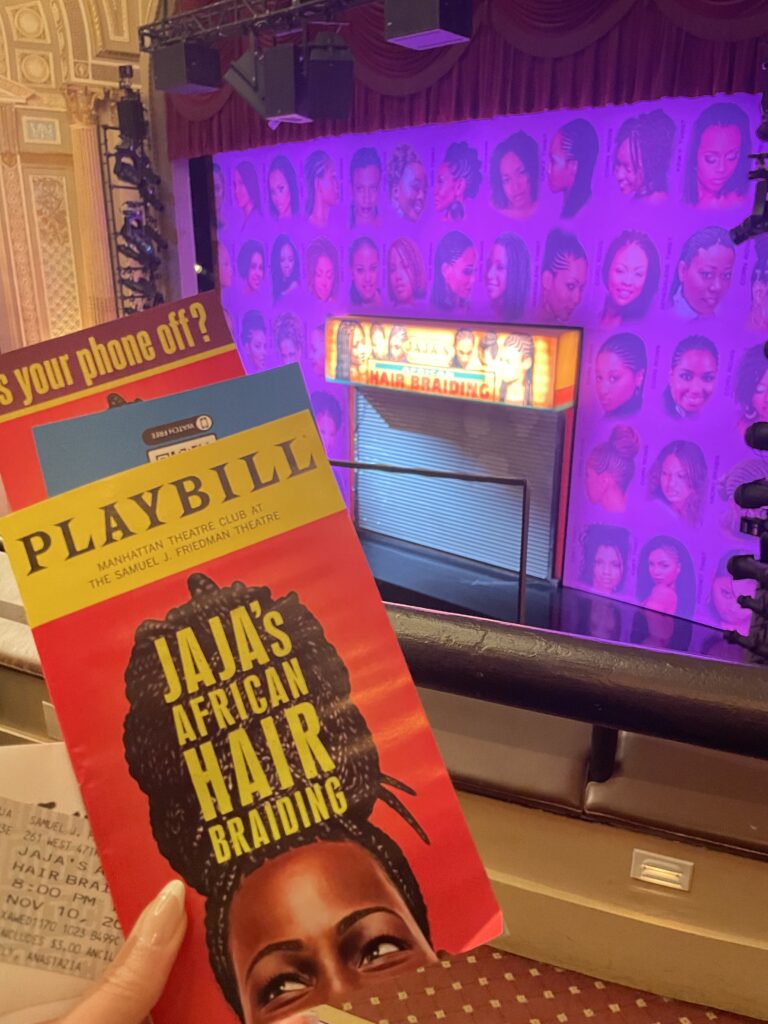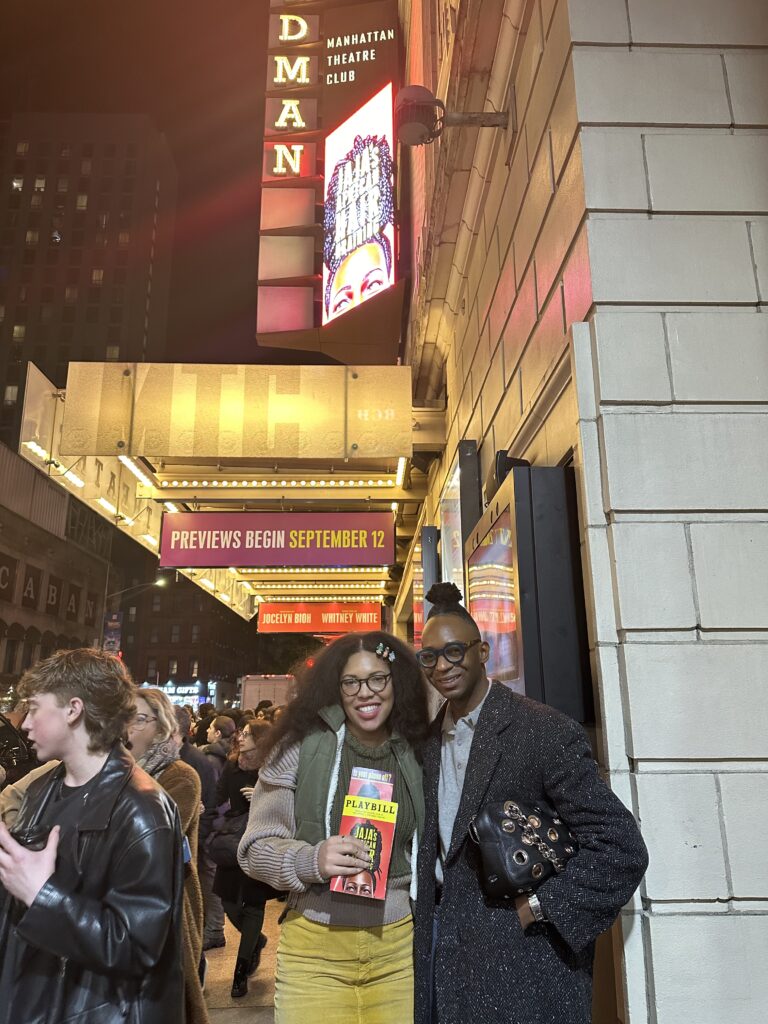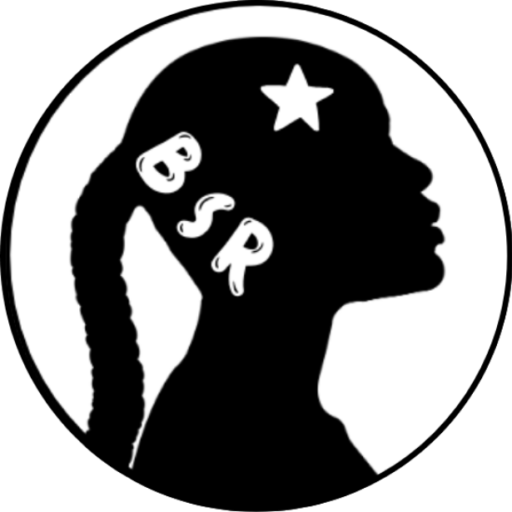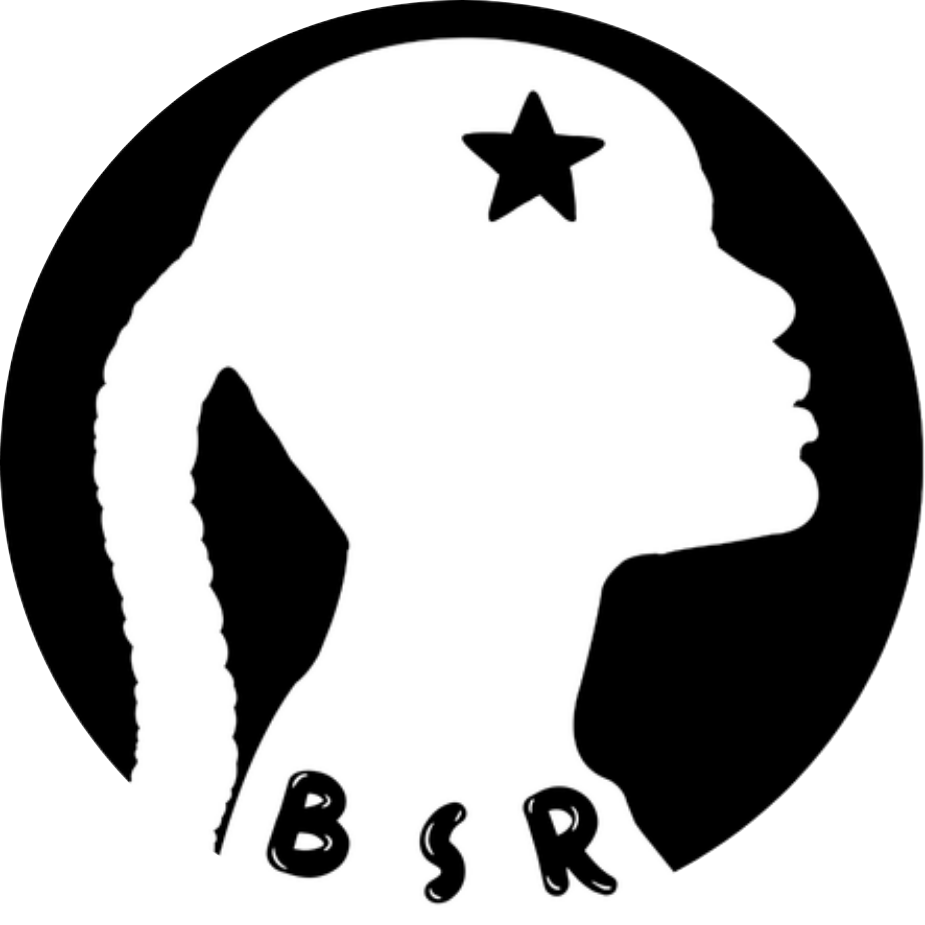Jaja’s African Hair Braiding


When Beyonce released her RENAISSANCE album, my friend Kelly made an observation that stuck with me. “I wanna hear the tapes! You know Beyonce is over the top. Where are the takes that she dialed back to make the album? Where’s the raw footage?” The idea that somewhere, there is a version of the Renaissance album that is just too vocal to be palatable is a mind-bending one. There are runs on top of runs, falsetto notes blended seamlessly with the bottom of the barrel growls that make your dashboard shake, and waterfalls of sound that don’t seem humanly possible; but THIS is the edited version. Jaja’s African Hair Braiding feels similar. I wanted more: mainly, a second act. There, after the intermission, perhaps we’d hear a monologue for each of the other characters that matched the depth of Miriam’s center stage moment recounting her love and life in Sierra Leone. We may also be granted a moment between Mary (aka Kelly) and her mother Jaja where she tells her that every sacrifice she’s made has been for her and Mary can be honest about her true ambitions. Surely we’d give some justice to Aminata, who now lives in a country where she can get divorced but chooses to stay with a man who cheats and lies and takes from her. I don’t need the clips from Mrs. Carter’s sound engineer, but I do need the rest of the show from Ms. Bioh.
Jocelyn Bioh is a gifted writer; she’s skilled at sharing culture in a way that winks at the insider audience without leaving the spectator out of the joke. Everyone can laugh at the braiding client from hell, but the box braid girlies who’ve been to a shop can conjure a singular person to mind. The combination of immersive set design express from 125th Street (David Zinn), blowout-to-braided wig magic (Nikiya Mathis), and subtle variety in West African accents (dialect coaching by Dawn-Elin Fraser) was a gift to the audience. Overall, though, the acting and the visage outshone the story itself. The show is framed as one day in an uptown braiding salon owned by Jaja and run by her college-bound daughter, the remaining cast is comprised of braiders and a rotating archetype of clients (the baddie, the sleeper, the jet-setter, the boss babe, etc.) It’s difficult to give a spoiler-free synopsis since the show ends at the conflict, which is generally the high point in a typical hero’s arc. Perhaps there were previous versions, other endings, and a hard final choice of how to close the show. I’m not a playwright, but as a writer, I can empathize. There’s got to be version of this show that pushes audience further. Despite how impatient you might be to finally escape the salon chair, every client knows the last step of the braid appointment: a slow dip into just-boiling water to seal the braids and set the style. By leaving the ends loose, Bioh runs the risk of the whole story unraveling when the curtain closes.
After the show, discuss loves lost and make up your own stories for the women in Jaja’s shop over Nigerian-style Jollof rice at Lagos TSQ. Just like most braiding shops, you’re more likely to receive service if you book a reservation (but either way, they’ll probably squeeze you in).

